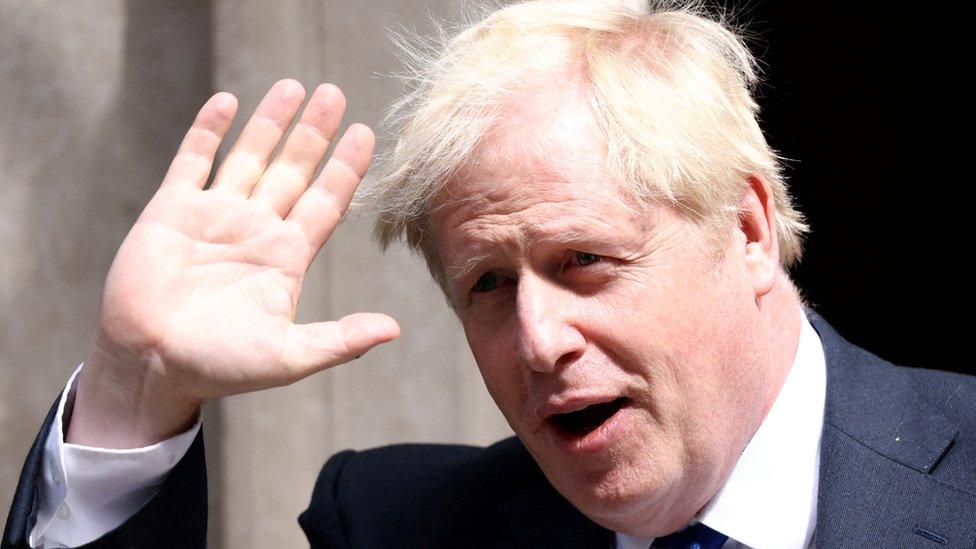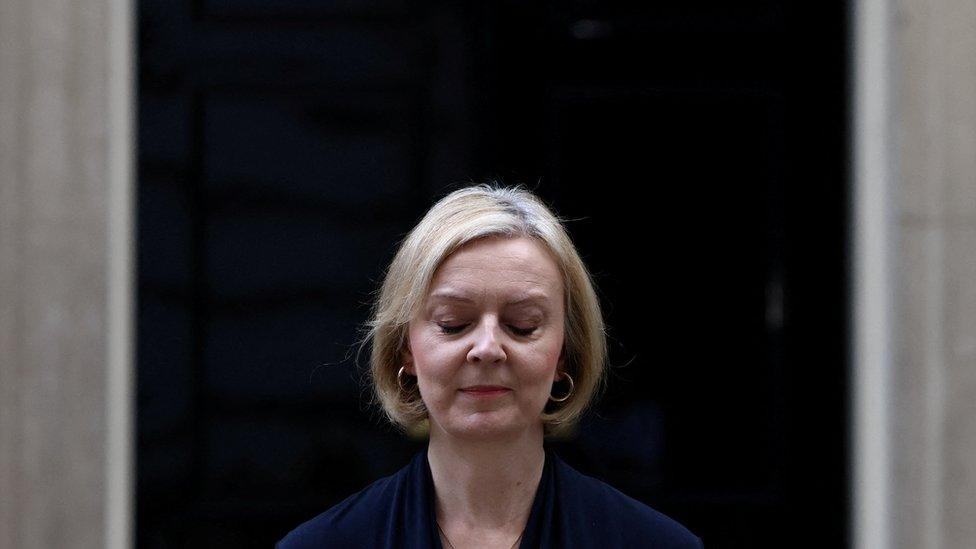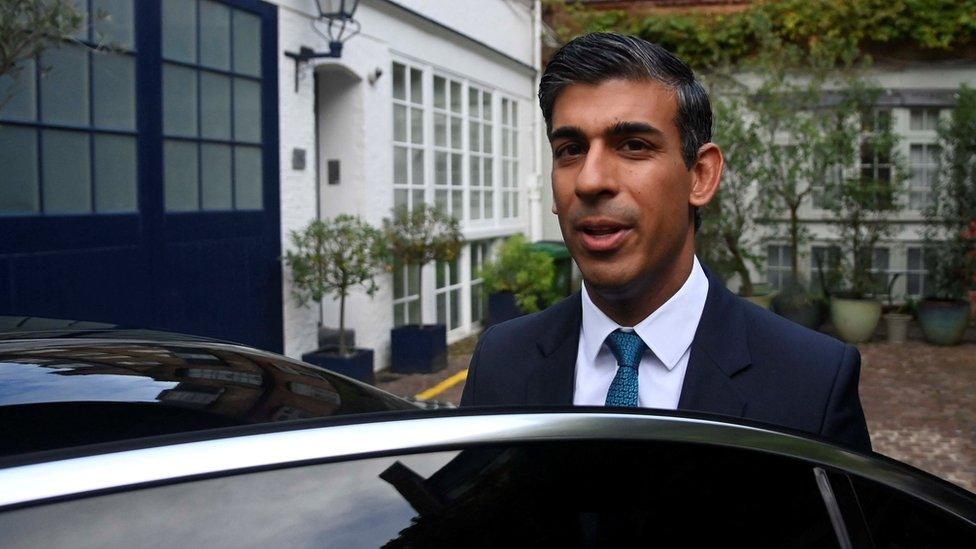Scottish Tories dread the return of Boris Johnson
- Published

There have been reports that Boris Johnson is considering standing for the Tory leadership - and the post of prime minister - just weeks after being forced from office
"I thought she would be boring".
That is the key reason one senior Scottish Conservative gives for backing Liz Truss for the premiership.
This politician had been seeking a drama-free replacement for Boris Johnson. Someone who would quietly get on with the job.
They can scarcely believe how differently the last six weeks have turned out, even though Liz Truss's rival Rishi Sunak did warn that disaster loomed.
She set out to borrow extra billions to limit rising energy bills and to cut taxes in pursuit of economic growth.
Her programme spooked the financial markets, prompting the pound to fall in value and a sharp rise in mortgage interest rates.
The prime minister insisted, Margaret Thatcher style, she was not for turning and then under threat of rebellion from her own MPs did exactly that - in spectacular style.
Her chancellor was ditched and was soon followed by much of their shared economic programme. With that went the authority any prime minister requires to govern.
An early end to her premiership became inevitable. That it should come just 24 hours after Liz Truss told Parliament she was a "fighter not a quitter" was stunning.
Having initially backed the PM and her tax-cutting plans, the Scottish Conservative leader Douglas Ross was quick to conclude she made the right decision to go.
Just six weeks ago, many senior Scottish Tories felt sure Liz Truss would be an improvement on Boris Johnson - a judgement that has rapidly required reassessment.
It's not just her economic performance that has caused dismay in the Scottish party.
One Tory parliamentarian said the PM had also messed up - although they used a somewhat stronger term - by failing to phone, let alone meet, First Minister Nicola Sturgeon.

Liz Truss has still not had a formal meeting or telephone conversation with Scotland's first minister
Liz Truss did once suggest that Ms Sturgeon was best ignored and remarkably that is one of the few positions she has sustained throughout what has turned out to be the shortest premiership in British history.
The SNP has been quick to seize on the chaos in UK politics and to incorporate it into their argument for Scottish independence.
Essentially they are presenting an independent Scotland as an opportunity to escape the turmoil, start afresh and make better decisions.
While that will no doubt be attractive to some, it will prompt others to wonder how much more economic upheaval the process of leaving the UK might bring.
If the markets can punish uncertainty in a medium-sized economy like the UK, what might they do to test the institutions of a newly independent Scottish state?
Nationalists will soon have the opportunity to press the case for another referendum with a new prime minister, although it seems unlikely any Conservative leader would agree to indyref2 right now.
The last thing some senior Scottish Tories want is the return of Boris Johnson.
That would be a "very dangerous" choice said one, given that the former PM still faces a parliamentary inquiry into whether he misled Parliament over partygate.
Another said a Johnson comeback would "destroy the Conservative party".

Rishi Sunak is widely expect to launch another bid for the leadership after losing to Ms Truss in the last contest
Mr Johnson is not short of supporters among Conservative MPs but if he has prominent backers in the Scottish party, they are about as forthcoming as those who previously endorsed Liz Truss.
MPs Andrew Bowie and John Lamont have renewed their support for their first choice candidates in the last contest - namely Rishi Sunak and Penny Mordaunt.
They are probably among those best placed to secure the 100 MP nominations required.
The Defence Secretary, Ben Wallace, a one time MSP, was considered by some as a strong contender but has already ruled himself out - and said he would currently "lean towards" backing Mr Johnson.
Whoever emerges as Liz Truss's successor is unlikely to bow to the demands of the SNP, Labour and the Lib Dems for a snap general election.
The Tories are too far behind in the opinion polls to risk a contest, however politically awkward it may be for a new PM to trade on the mandate won by Boris Johnson three years ago.
When Tory MPs select the final two candidates on Monday, there is likely to be pressure on one to bow out of the race to avoid a party membership vote and to allow the fastest possible replacement of Liz Truss.
Her successor faces an enormous task in trying to stabilise UK politics and the economy and limit damage to the Tory brand. As one Tory MP put it: "We are fighting for survival".